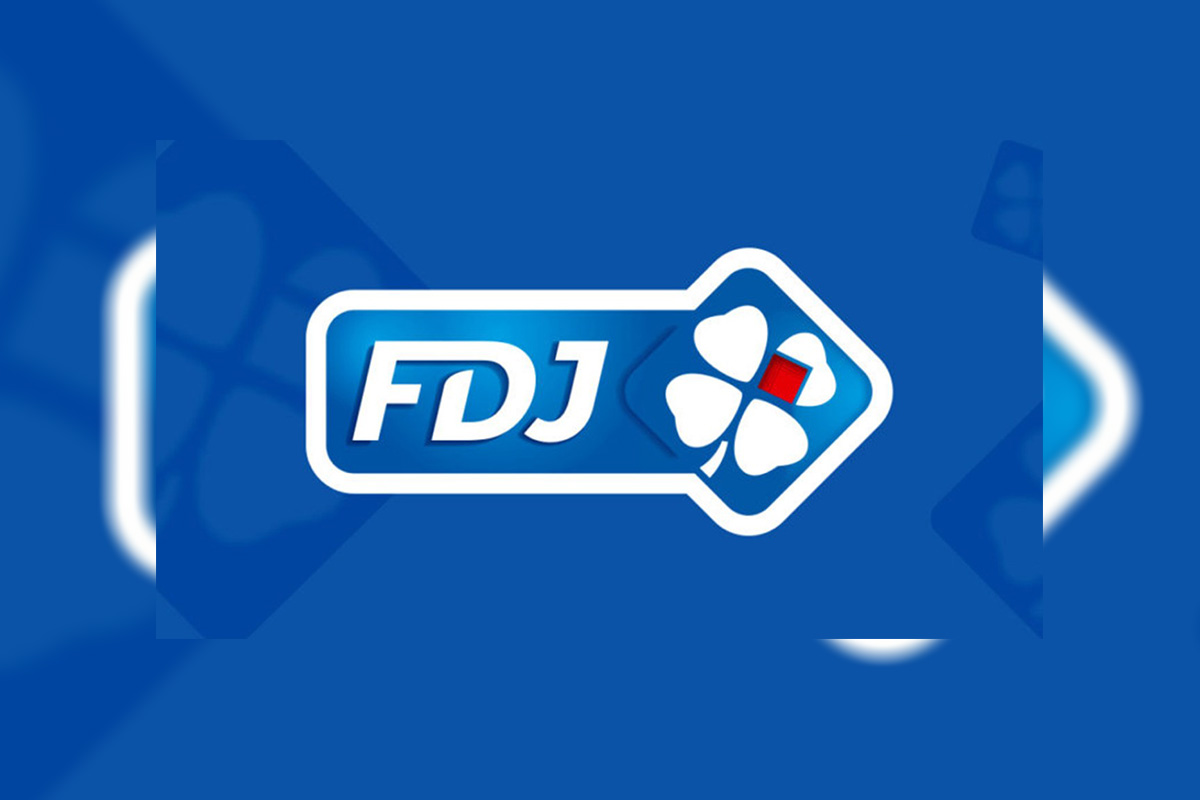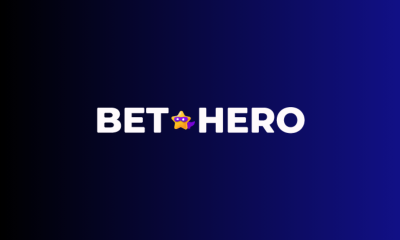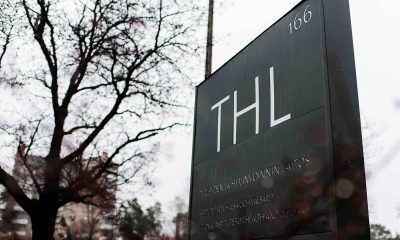Latest News
Gambling Market Review for the First Half of 2024: Market Growth Mainly Driven by the Performance of FDJ and Online Sports Betting Operators

Activity of monopoly operators (FDJ and PMU): growth dynamics for FDJ and declining activity for PMU
The activities of La Française Des Jeux (FDJ) and PMU represent 78.5% of the total market gross profit.
The gross profit of FDJ activities reaches €3.5 billion in the first half of 2024, up 5.5% compared to the first half of 2023.
These good performances are mainly due to sports betting activities in points of sale and in competition, the GGR of which increased by 14% to reach €611 million over this period.
The lottery activity (composed of draw and scratch games) saw its gross sales increase to a level 4 times higher than last year (4% in 2024, or €2.9 billion, compared to 1% in 2023).
More specifically, the draw (+2.1% in turnover) benefited from attractive jackpot amounts for Euromilions players and the continued installation of the new EuroDreams game. For their part, scratch games continued their growth (+6.7% in turnover), driven in particular by the launches of Ticket d’or and Maxi Black Jack.
For the first time since the end of Covid, PMU activity in the first half of 2024 is down compared to the same period in 2023. Both the stakes and the PBJ are down (respectively -2% and -2.3%), bringing them back to levels below 2022. The first quarter of 2024 weighed heavily on these results, with a drop of around 4% in stakes and the PBJ.
Activity of licensed online gaming operators: a semester with strong growth with disparities depending on the gaming segments
The first half of 2024 is marked by an increase in the GGR of the online market of 11% (i.e. €1.3 billion in GGR). This amount exceeds the previous historical high point recorded in the first half of 2021 (€1.2 billion). However, this increase masks disparities between the different segments with sports betting achieving a record first half (+16% GGR compared to H1 2023) , poker having experienced more moderate growth in its GGR (+2%) and horse racing betting showing a slight decline (-2%).
The gross profit for this semester is composed of 67% gross profit from sports betting , 20% gross profit from online poker and 13% gross profit from horse racing betting .
The total number of APAs increased by 13% over the period to reach 4.3M. This increase is mainly observed in sports betting (+16%, or 3.6M APAs) and, to a lesser extent, in poker, which saw its number of active player accounts (APAs) increase over the last months of the half-year (+11%, or nearly 1.5M APAs).
SPORTS BETTING: a very profitable half-year due to the Euro football championship and the good performances of French clubs
At the end of the first half of 2024, the level of bets recorded a growth of 24%, or €5.2 billion. Football accounts for 53% of bets. At the same time, the GGR increased by 16% to reach €871 million.
This development marks a very profitable half-year for sports betting, due to the Euro football championship but also the excellent performances of French clubs in major football competitions (PSG in the semi-finals of the Champions League, Olympique de Marseille in the semi-finals of the Europa League).
This sharp increase in the GGR is accompanied by that of the CJA (+16% between the first halves of 2023 and 2024) and exceeds, in absolute amount, the record of the first half of 2021. A peak in recruitment is observed in June (+63%) and is explained by the marketing campaigns and acquisition strategies of the operators during the period of the Euro Football.
Overall, whatever the ratio chosen, the intensity of play seems to be increasing (+13% for the average bet placed, +7% for the average stake per CJA).
HORSE RACING BETTING: an increase in stakes and an expansion of the pool of players
After a moderate increase in its level of activity in 2023, the online horse racing betting segment is this time recording a more significant increase in its stakes, of around 6%, for a total of €787 million at the end of the first half of 2024 .
Unlike stakes, the GGR will decline by 2% between the first half of 2023 and that of 2024. However, it remains in the same order of magnitude as at the end of the Covid crisis, i.e. around €170 million.
The number of CJA increases by 3% between the first half of 2023 and 2024 (i.e. nearly 500k CJA), reaching a new record for the horse racing betting segment. This increase echoes in particular that of the number of bets: +3% compared to the first half of 2023, to reach 254M bets.
ONLINE POKER: a growing segment, with a slower pace than in 2023
Online poker gross sales reached €257 million, 2% more than in the first half of the previous year.
Despite the relative slowdown in its growth, online poker has a solid unique player base of 1.2 million players, up more than 10% for the second year in a row.
This consolidation of the player pool may originate, to a certain extent, from the cross-selling strategies carried out between this segment and that of sports betting. Indeed, the number of CJA increased significantly in June, with an increase of 31.1%, compared to June 2023. This strong increase in CJA, with a GGR that increases moderately, suggests the recruitment of occasional players or those who are discovering the poker offer.
The post Gambling Market Review for the First Half of 2024: Market Growth Mainly Driven by the Performance of FDJ and Online Sports Betting Operators appeared first on European Gaming Industry News.
Latest News
TRUEiGTECH Unveils Enterprise-Grade Prediction Market Platform for Operators

TRUEiGTECH has announced the launch of an enterprise-grade prediction market platform, designed to help operators, platform owners, and institutions build outcome-based or event-driven trading markets at scale.
As traditional sports betting, media monetization, and trading platforms face growing competition and regulatory complexity, prediction markets are emerging as a fast-growing adjacent category. By converting collective expectations into tradable probability signals, operators can offer differentiated products without the need for entirely new user acquisition channels.
TRUEiGTECH-built prediction markets are already deployed by operators across the USA and Europe, with additional rollouts underway. Once a niche, prediction markets are now becoming primary offerings for iGaming operators. Analysts forecast that leading platforms could handle $1 trillion in annual trading volume by 2030, up from roughly $10 billion today, with revenues potentially exceeding $10 billion.
Why Operators Are Turning to Prediction Markets
Prediction markets offer several advantages:
-
“Bet-on-anything” model – create markets across business, finance, entertainment, politics, and emerging trends.
-
Faster market entry – ideal for existing iGaming operators with infrastructure in place.
-
Early-mover advantage – tap into a category still developing globally.
-
Global momentum – strong uptake in the U.S. and other regulated markets where event-driven participation is growing.
Flexible Deployment Models
TRUEiGTECH co-founder Prish Kumar explained:
“We provide turnkey and bespoke prediction market platform development solutions. Plus, we also offer prediction market clone development and prediction market API integration solutions.”
Operators can use TRUEiGTECH platforms to launch new prediction markets or extend existing offerings, with flexibility and scalability at the core. The platform is designed to be regulation-ready for markets in the USA, Europe, and other regulated jurisdictions.
TRUEiGTECH: Enterprise iGaming Solutions
TRUEiGTECH specializes in enterprise-grade betting and trading infrastructure, offering:
-
Casino Platforms – AI-driven online casino software , multi-game aggregation, player account management, and compliance-ready architecture.
-
Sweepstakes Platforms – legally structured software for markets with restricted real-money gaming.
-
Sportsbook Software – advanced odds management, risk control tools, and real-time in-play betting.
-
Casino Games – responsive slots and custom content optimized for performance and integration.
-
Lottery Platforms – supporting draw-based, instant win, and hybrid formats with regulatory reporting.
All solutions are built for regulated markets across the USA, Europe, LATAM, and the UK.
Contact
Head of Marketing
Prish K
TRUEiGTECH
The post TRUEiGTECH Unveils Enterprise-Grade Prediction Market Platform for Operators appeared first on Eastern European Gaming | Global iGaming & Tech Intelligence Hub.
Latest News
TRUEiGTECH Unveils Enterprise-Grade Prediction Market Platform for Operators

TRUEiGTECH has announced the development of an enterprise-grade prediction market platform designed to help operators, platform owners, and institutions launch outcome-based or event-driven trading markets at scale.
As traditional sports betting, media monetization, and trading platforms face increasing competition and regulatory complexity, prediction markets are emerging as an adjacent category with significant growth potential. By converting collective expectations into tradable probability signals, these markets provide operators with a differentiated product without requiring entirely new user acquisition channels.
TRUEiGTECH built prediction markets are already used by operators across the USA and Europe with additional deployments underway. Prediction markets have transitioned from experimental niche platforms to primary offerings by iGaming operators.
Analysts forecast leading prediction platforms will handle roughly $1 trillion in annual trading volume by 2030, up from about $10 billion today. Revenue, meanwhile, could rise to $10 billion+ by 2030.
TRUEiGTECH’s decision to build prediction market software and platforms at this juncture will certainly prove useful for business owners and operators looking to enter the industry with the right product.
Operators are increasingly drawn to this segment because it offers:
- A “bet-on-anything” model, enabling markets across business, finance, entertainment, politics, and emerging trends.
- Faster entry compared to traditional sportsbooks, especially for existing iGaming operators with established infrastructure.
- Early-mover advantage in a category that is still taking shape globally.
- Strong momentum in the U.S. market & across the globe, where demand for event-driven participation continues to accelerate.
TRUEiGTECH Offers Prediction Market Platforms in Multiple Ways
TRUEiGTECH’s co-founder, Prish Kumar, shares the multiple models and solutions available as a part of the company’s prediction market offerings.
“We provide turnkey and bespoke prediction market platform development solutions. Plus, we also offer prediction market clone development and prediction market API integration solutions.”
With TRUEiGTECH, operators can launch prediction markets or extend existing business offerings. By focusing on flexibility and scalability, TRUEiGTECH aims to position prediction markets as an accessible expansion path rather than a complex standalone venture.
With this launch, TRUEiGTECH enters the prediction market space as an infrastructure provider focused on enabling operators to build and launch regulation-ready prediction platforms in the USA, Europe and other regulated markets.
About TRUEiGTECH
TRUEiGTECH is a software development company which specializes in enterprise-grade betting and trading infrastructure development. The company builds turnkey and custom platforms for;
- Casino Platform: AI-empowered online casino software featuring multi-game aggregation, player account management (PAM), secure payment systems, and compliance-ready architecture for regulated markets.
- Sweepstakes Platform: Legally structured online sweepstakes software designed for markets where traditional real-money gaming is restricted, enabling operators to monetize engagement while maintaining regulatory alignment.
- Sportsbook Software: Comprehensive sportsbook software solutions featuring advanced odds management, robust risk control tools, real-time in-play betting capabilities, and scalable architecture designed for seamless multi-jurisdiction operations.
- Casino Games: Responsive casino and slot games, with custom gaming content developed through expert casino game development processes, optimized for performance, player retention, and seamless integration into existing gaming platforms.
- Lottery Platforms: Advanced lottery software solutions supporting draw-based, instant win, and hybrid formats, with capabilities for retail POS integration, ticket management, and regulatory reporting.
TRUEiGTECH’s iGaming solutions are built for globally regulated markets, including the USA, Europe, LATAM, and the UK.
Contact
Head of Marketing
Prish K
TRUEiGTECH
The post TRUEiGTECH Unveils Enterprise-Grade Prediction Market Platform for Operators appeared first on Americas iGaming & Sports Betting News.
Latest News
TRUEiGTECH Unveils Enterprise-Grade Prediction Market Platform for Operators

TRUEiGTECH has announced the development of an enterprise-grade prediction market platform designed to help operators, platform owners, and institutions launch outcome-based or event-driven trading markets at scale.
As traditional sports betting, media monetization, and trading platforms face increasing competition and regulatory complexity, prediction markets are emerging as an adjacent category with significant growth potential. By converting collective expectations into tradable probability signals, these markets provide operators with a differentiated product without requiring entirely new user acquisition channels.
TRUEiGTECH built prediction markets are already used by operators across the USA and Europe with additional deployments underway. Prediction markets have transitioned from experimental niche platforms to primary offerings by iGaming operators.
Analysts forecast leading prediction platforms will handle roughly $1 trillion in annual trading volume by 2030, up from about $10 billion today. Revenue, meanwhile, could rise to $10 billion+ by 2030.
TRUEiGTECH’s decision to build prediction market software and platforms at this juncture will certainly prove useful for business owners and operators looking to enter the industry with the right product.
Operators are increasingly drawn to this segment because it offers:
- A “bet-on-anything” model, enabling markets across business, finance, entertainment, politics, and emerging trends.
- Faster entry compared to traditional sportsbooks, especially for existing iGaming operators with established infrastructure.
- Early-mover advantage in a category that is still taking shape globally.
- Strong momentum in the U.S. market & across the globe, where demand for event-driven participation continues to accelerate.
TRUEiGTECH Offers Prediction Market Platforms in Multiple Ways
TRUEiGTECH’s co-founder, Prish Kumar, shares the multiple models and solutions available as a part of the company’s prediction market offerings.
“We provide turnkey and bespoke prediction market platform development solutions. Plus, we also offer prediction market clone development and prediction market API integration solutions.”
With TRUEiGTECH, operators can launch prediction markets or extend existing business offerings. By focusing on flexibility and scalability, TRUEiGTECH aims to position prediction markets as an accessible expansion path rather than a complex standalone venture.
With this launch, TRUEiGTECH enters the prediction market space as an infrastructure provider focused on enabling operators to build and launch regulation-ready prediction platforms in the USA, Europe and other regulated markets.
About TRUEiGTECH
TRUEiGTECH is a software development company which specializes in enterprise-grade betting and trading infrastructure development. The company builds turnkey and custom platforms for;
- Casino Platform: AI-empowered online casino software featuring multi-game aggregation, player account management (PAM), secure payment systems, and compliance-ready architecture for regulated markets.
- Sweepstakes Platform: Legally structured online sweepstakes software designed for markets where traditional real-money gaming is restricted, enabling operators to monetize engagement while maintaining regulatory alignment.
- Sportsbook Software: Comprehensive sportsbook software solutions featuring advanced odds management, robust risk control tools, real-time in-play betting capabilities, and scalable architecture designed for seamless multi-jurisdiction operations.
- Casino Games: Responsive casino and slot games, with custom gaming content developed through expert casino game development processes, optimized for performance, player retention, and seamless integration into existing gaming platforms.
- Lottery Platforms: Advanced lottery software solutions supporting draw-based, instant win, and hybrid formats, with capabilities for retail POS integration, ticket management, and regulatory reporting.
TRUEiGTECH’s iGaming solutions are built for globally regulated markets, including the USA, Europe, LATAM, and the UK.
Contact
Head of Marketing
Prish K
TRUEiGTECH
-

 Aphrodite’s Kiss4 days ago
Aphrodite’s Kiss4 days agoLove on the Reels: Slotland Introduces “Aphrodite’s Kiss”
-

 Amusnet4 days ago
Amusnet4 days agoWeek 7/2026 slot games releases
-

 Denmark5 days ago
Denmark5 days agoRoyalCasino Partners with ScatterKings for Company’s Danish Launch
-

 Latest News6 days ago
Latest News6 days agoWinSpirit’s UnValentine’s Day: A New Take on February Engagement
-

 Bryndís Hrafnkelsdóttir6 days ago
Bryndís Hrafnkelsdóttir6 days agoNOVOVISION Implemented at the University of Iceland Lottery
-

 Finnish Institute for Health and Welfare6 days ago
Finnish Institute for Health and Welfare6 days agoFinland’s Health Authority Launches “2-4-2” Gambling Risk Limits Ahead of Expected Advertising Boom
-

 40 Treasures6 days ago
40 Treasures6 days agoCT Interactive Enters into Partnership with Mozzartbet.rs
-

 Booming Games5 days ago
Booming Games5 days agoTreasure Hunt Revival — Booming Games Launches Gold Gold Gold Hold and Win































